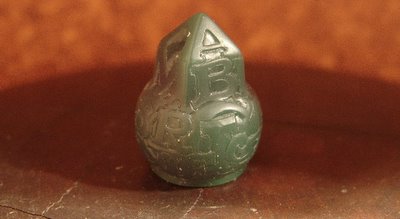The week has passed with some progress at the wax desk, even as I am reminded how difficult it is, in the best of timing, to focus down into those small spaces from the infinitely larger scale of processes in ordinary life.
The scale of systems involving weather patterns, for example: weeks of incessant rain; recently with notable wind storms in addition; watching the drainage systems on the soils of our road & cliff… seeing movement; hearing in addition the fell sounds of major tree trimming work, which feels murderously unsettling… even as I look forward to the change of light for new planting; then going two evenings into the city’s McCaw Hall for performances of both the ballet & the opera within the same week; all making major distractions even before those I can so easily invent for myself inside the very space that is studied to creatively isolate me.
I must travel large distances to get down into those realms inside the magni-visor’s magnification where a millimeter is ten times the size of the tool I must wield… micro climates can evidence weather patterns as well.
The wax showing the most progress is a revision of a popular design, the ALPHABET bell. The original pattern suffers from a weak skirt, or sound bow, which rarely stays easily round & sturdy through the production processes. There are often designs which suffer from the fact I do the work in the real time/space of a single wax, so that it contains, like a painting, all the processes of its changes & repairs coming into reality.
The word palimpsest comes to mind even as it isn’t quite so directly applicable as in a painting.
Still, the vicissitude of doing repairs in wax does leave a shadow of less solid physics in the form of wax structure weakenend by my remelting & re-fusing the material. The texture suffers into what is softer, mushier, lacking character & refusing in turn to take & to keep detail like the original.
 This shows the beginning: a new, slightly smaller wax blocked to the basic shape of the original bell, with the drawing of the first glyphs. I am keeping the composition, I am simply recarving it with the production considerations in mind to make it stronger & smoother in the flow.
This shows the beginning: a new, slightly smaller wax blocked to the basic shape of the original bell, with the drawing of the first glyphs. I am keeping the composition, I am simply recarving it with the production considerations in mind to make it stronger & smoother in the flow.
There is the necessity to think of the several parts of the process when the design must function in liquidity. The wax must flow out of the investment mold, the molten metal must flow in to replace the wax. Then again the wax must flow smoothly into the rubber production mold… so a good design must not unduly obstruct such important procession of such material. In fact it must do all it can to promote smooth & efficient flow, minimizing the rough surfaces & deeper porosity which can result from such turbulence.
One must begin to turn one’s thinking inside out between the positives & negatives in which these processes exist during various stages. During the mold cutting I am dealing quite literally with a palpable version of such negative space as it has become filled with rubber vulcanized round the bell. Inside that shell one must imagine the liquid wax flowing. Flow is important to what wants ultimately to be sturdy in stasis…
The technique I prefer is one of subtraction rather than addition… carving away in a hard, dense wax more like a plastic than anything candle-like… so I often answer the question as to whether I draw my designs first by saying that I do nothing else. I mean, first I must prepare a sculptural ground upon which to do the drawing which would be impossible to put onto a single flat paper… so I sculpturally draw the form in the wax material, bringing it to the basic size in space of the concept, giving it the rough configuration in three dimensions. Is not even that “drawing” at some level?
I need this form to conform to the idea, even inside the search toward the resolve of that idea, before I have what corresponds to a piece of drawing paper as it would relate to a canvas if I were painting. I need a three dimensional “canvas” on which to begin composing the arrangement of, for instance, the glyphs of the alphabet which make this bell’s composition.
Of course, I can grab the notion of a sculptural concept on a sheet of paper, often with some useful facility to show much which can be extrapolated or groked as a larger idea having fullness in the round. I do draw in that way as well, but sculpture obviously has not just a front & a back, but exists equally at where paper has only invisible edges….
Thus a finished wax exists as the result of hundreds of drawings made on material no longer there… erasure as drawing, perhaps. Or would that be some sort of negative palempsest? I’m deliciously wallowing in these concepts while you are probably confused while I attempt to share parts of my play during these deep nights working…


